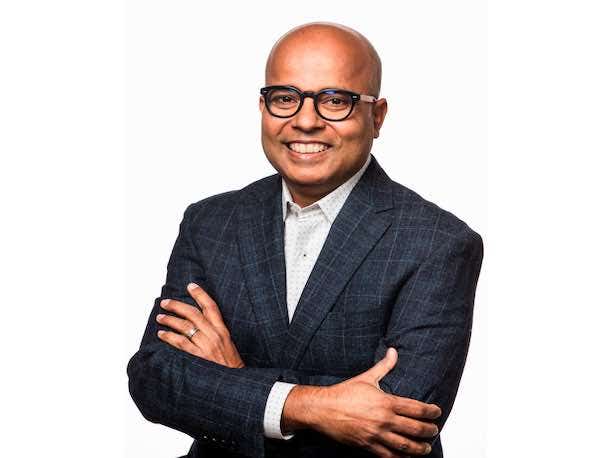7 Cybersecurity CEOs That Are Eyeing An IPO
As the IPO window reopens, CEOs at fast-growing security vendors tell CRN there are a number of factors going into their decision about when to take the leap.

Return Of The IPO
As the CEO of one of the top-valued cybersecurity unicorns, Snyk, Peter McKay is watching closely as tech companies once again take their shots at going public. After a nearly two-year drought of initial public offerings for major IT and cybersecurity companies, the IPO market is showing “signs of life,” McKay noted in a recent interview with CRN. Shares in chip designer Arm are set to begin trading Thursday following the company’s top-of-range IPO pricing Wednesday, while marketing automation firm Klaviyo and grocery delivery service Instacart are soon expected to complete IPOs, as well.
[Related: 10 Cybersecurity Companies Making Moves: August 2023]
Around the tech industry, it’s clear that “a lot of people are watching to see how that goes,” McKay said. The still-to-be-determined fate of the Klaviyo and Instacart IPOs could be seen as an especially important signal to other VC-funded unicorns like Snyk, a developer security platform that was most recently valued at $7.4 billion by its investors.
Many venture-backed IT and cybersecurity firms aren’t sure yet whether the IPO waters are hot or cold, McKay said. The thinking, he said, goes something like this: “Let’s let some people go in, see what the temperature is, and make that [IPO] assessment [for ourselves].”
For the cybersecurity industry, it’s been a couple of years since a pure-play security vendor went public. It’s been so long that of the five most recent security vendors to complete IPOs, two aren’t even public anymore, having returned to private equity ownership.
Those include the most recent cybersecurity company to complete an IPO, ForgeRock, which went public in September 2021. In August, shortly before ForgeRock’s two-year anniversary as a public company, private equity firm Thoma Bravo completed its acquisition of the identity security firm and folded the vendor into one of its other portfolio companies, Ping Identity. Another company from the cybersecurity IPO class of 2021, KnowBe4, was also taken private this year.
In interviews with CRN, McKay and six other CEOs at fast-growing cybersecurity vendors have recently shared some of their calculus around when—and why—they might pursue an IPO for their companies. The other CEOs include Netskope’s Sanjay Beri, who said he has no doubt that the company, which competes with publicly traded security vendors including Palo Alto Networks and Zscaler, is on the IPO path. “Netskope will always be Netskope,” he said.
Also among the CEOs is Rubrik’s Bipul Sinha, who discussed the data security vendor’s IPO ambitions with CRN earlier this year, prior to reports that Rubrik may become the first cybersecurity company to test the IPO waters in 2023.
What follows are comments from CRN interviews with seven cybersecurity CEOs that are eyeing an IPO.

Rubrik
CEO: Bipul Sinha
In January, Sinha told CRN that the company has the “scale and momentum” to go public. He made the comments as the data security vendor disclosed that it had crossed $500 million in annual recurring revenue (ARR). That was up from $400 million in ARR as of August 2022, and has put Rubrik in the same ballpark as some of the industry’s publicly traded firms, such as SentinelOne.
In a bid to add even more firepower for an IPO, Rubrik also announced in January that it had added the former CEO of cybersecurity giant Palo Alto Networks, Mark McLaughlin, to its board. As chief executive of Palo Alto Networks, McLaughlin took the company public in 2012.
In speaking with CRN in January, Sinha said that Rubrik counts itself among a small group of “platform companies” in the cybersecurity industry—a cohort that also includes publicly traded firms such as Palo Alto Networks and CrowdStrike. “When you have a platform company with multiple applications and capabilities across a wide swath of solutions, then you get this effect of high growth, high scale,” he said.
Ultimately, “we want to build a long-term, long-lasting cybersecurity company,” Sinha said. “Obviously, at some point we want to be a public company. We are watching the market and when the time is right, we’ll be a public company. We definitely have the scale and momentum [to complete an IPO].”
In early September, Bloomberg reported that Rubrik’s investor road show could start as early as October, with the IPO likely to reach completion by the end of the year. Rubrik, the report said, has also hired seven more banks to join the three lead underwriters that were previously disclosed in a Reuters report in June.
Going public could bring in between $500 million and $700 million in funding for Rubrik, according to the Bloomberg report in September. The company declined to comment on the report when reached by CRN.

Snyk
CEO: Peter McKay
At this stage, Snyk has already completed much of the groundwork for going public, McKay told CRN during a Sept. 6 interview. But the developer security company is prepared to continue waiting for the most opportune timing for its IPO, he said. “We’re in the fortunate position where we have enough cash to pick and choose when that happens,” McKay said.
“But there’s no question—our goal has always been to be a public software company. And we’ve run our business very much like it,” he said. “Our board is very public-centric. The infrastructure, the finance, everything that we can control, we’re public-ready.”
In addition, “the growth rate is there, the path to profitability—we have all of that in our line of sight. All the metrics are there,” McKay said. “I think we can be a very, very successful public company.”
At the same time, “there’s no rush. Nobody’s asking for liquidity,” he said. As Snyk has gone through its numerous rounds of funding, “we’ve been able to provide liquidity along the way to employees, to shareholders.”
But even with this lack of pressure to pursue an IPO, there’s a case to be made for not waiting too long, McKay acknowledged. Competitors have also disclosed IPO aspirations, and whoever gets public first will no doubt enjoy a branding and PR boost, McKay said. “We recognize that,” he said. “So those are the drivers of doing it sooner.”

Armis
CEO: Yevgeny Dibrov
Fast-growing Armis is eyeing potential IPO timing as soon as the second half of 2024 , Dibrov told CRN in a Sept. 12 interview. The company—a top provider of cybersecurity for IT, medical, IoT and OT assets—disclosed in February that its ARR had surpassed $100 million, a key milestone for venture-backed tech vendors that are working up to an IPO. Armis has seen its ARR grow “significantly” since then, according to the company, although specific figures were not disclosed. The company did share that for the first six months of its fiscal year, from Feb. 1 to July 31, the company grew its customer base by 80 percent year over year.
In the interview with CRN, Dibrov also said that the company now has a “clear path” to being cash-flow-positive by mid-2024. “In terms of all the processes, numbers, everything that that basically we control—in the back half of ’24, we definitely will be ready [for an IPO],” he said. “It could be early ’25. But we will be ready on our side, and we’ll choose the best time slot for us.”
Ultimately, “we are not not in a rush. When the markets are in a good place and they’re open, we will be ready,” Dibrov said.
If the current IPO market was comparable to the market of 2021, “we would have been public already, a few quarters ago,” he said, thanks to reaching $100 million in ARR and generating rapid revenue growth. The “unofficial” IPO requirements today include having a “much more significant and predictable business,” Dibrov said.
“And it’s not just about growth, but also efficiency. We’re coming back to the fundamentals—fundamentals that the business needs to be efficient, needs to generate cash,” he said. “I think that it’s healthier to go public [with] $250 [million] or $300 million in ARR. That is a significant, predictable business.”

Netskope
CEO: Sanjay Beri
During a recent interview with CRN, Beri said that Netskope currently has no need to go public for financial reasons, but may still pursue an IPO in the coming years to help with “continuing to grow our awareness.”
Among the three leading vendors in the security service edge (SSE) market, Netskope ranks the highest on both vision and execution, according to Gartner. And the company has accomplished this without the visibility advantage of being a publicly traded company, unlike its two SSE leaders quadrant rivals, Zscaler and Palo Alto Networks.
At the same time, “our customers [already] know that this is a large, global company that services some of the largest companies in the world,” Beri said.
Netskope hasn’t disclosed dollar amounts or specific growth numbers for its revenue, but Beri said that the company has historically been growing in the vicinity of 50 percent a year. The vendor was last valued at $7.5 billion in 2021 in connection with its $300 million Series H funding round, which has placed Netskope among the highest-valued cybersecurity unicorns.
In terms of IPO timing, “would I foresee it in the next few years? Yes, that’s that’s possible,” Beri told CRN.
Ultimately, “Netskope will always be Netskope. I’ll be here in 15 years. For a lot of us, this is our legacy,” he said. “One day, will we go public? Yes. But we don’t have a need to do so for capital reasons.”

Optiv
CEO: Kevin Lynch
Cybersecurity solution and services powerhouse Optiv—No. 24 on CRN’s 2023 Solution Provider 500—has been laying the groundwork for an IPO that would aim to bring new funds into the business for acquisitions along with creating liquidity for employees, Lynch told CRN.
For those reasons, the goal is to eventually go public rather than be acquired, he said. And “we are in a position where, when it’s right for us, we can go out [for an IPO],” Lynch said.
In terms of future M&A, he pointed to Optiv’s acquisition of solution provider ClearShark in March as “a fantastic move for us [that] has taken our federal business to a much different scale.” Now, Optiv is considering other potential acquisitions, Lynch said. “At some stage, a continuation of that would necessitate more capital into the business,” he said, adding that going public would be one potential avenue for that.
Still, “we don’t need to” pursue an IPO any time soon, Lynch said, characterizing the company’s financial footing as solid thanks in part to a debt recapitalization that was completed in April.
Liquidity for employees would be another motivation for going public, according to Lynch. “Owner-driven companies are better companies, period,” he said. “Our ambition is not only to find the capital to continue to fuel and fund our growth, but it’s to put equity and opportunity in the hands of everybody in the company.”
Notably, Optiv has at this stage “done all the work to do [an IPO]. We have effectively been on file with the SEC,” Lynch said. “But we’ll wait for the public markets to be ready.”

Huntress
CEO: Kyle Hanslovan
In May, Hanslovan told CRN that with the $60 million Series C round raised by Huntress, he is now comfortable enough “to forecast we’re going to be a public company, or at least [an acquisition] of consequence.” The company raised the funding to continue the partner-driven expansion of its managed cybersecurity platform and, potentially, help lay the groundwork for an IPO, according to Hanslovan.
Hanslovan specified that an IPO for Huntress likely wouldn’t happen until mid-2025 at the earliest, if the fast-growing company does in fact decide to go that route. “I’m not saying that we’re planning or targeting that date,” he said.
However, more than two years ago, the company began preparations to potentially become a publicly traded company in the future, Hanslovan said—and “it usually takes a good company like four years to get ready to go public.”
“I’m all about readiness, and optionality—like, give me the option to do it,” he said. Huntress did not disclose specific revenue figures but has disclosed that its revenue grew, year over year, by 102 percent in 2022 and 125 percent in 2021.
While Huntress receives acquisition offers roughly once a month, an IPO may be the more likely outcome down the road, given that “there’s not very many companies large enough now to acquire us,” Hanslovan said.

Axonius
CEO: Dean Sysman
Cybersecurity asset management vendor Axonius has been generating revenue growth in the “high double digits” in terms of percentage, Sysman told CRN in May. Based on its revenue growth between 2018 and 2021, Axonius was ranked at No. 3 on the latest Deloitte Technology Fast 500 list.
With this type of momentum for Axonius—which is working to become the industry’s go-to “system of record” for digital assets and infrastructure—going public is an option that the company may explore in the next few years, Sysman said.
“Our goal is to be able to grow and become one of the leading software companies in the world,” he said. “One of the ways to implement that is an IPO. Obviously, the larger you become, the more likely an IPO makes sense. So that’s definitely something that we’re thinking about and is part of our thinking [for] the future.”
In early 2021, Axonius announced that its seed investor YL Ventures had sold off its stake in the company to “IPO-focused investors” including Iconiq Growth, whose earlier pre-IPO investments have included Snowflake, CrowdStrike and Airbnb.
In connection with its most recent funding round of $100 million in March 2022, Axonius achieved a valuation of $2.6 billion.